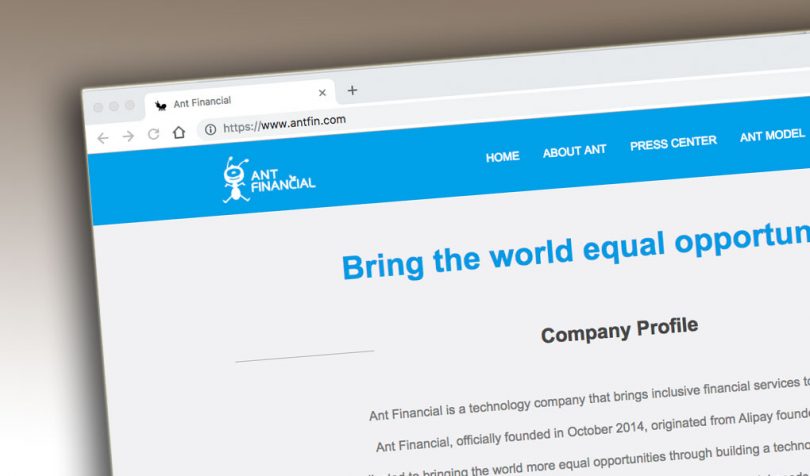On January 4th at the ATEC conference in China, Alipay’s parent Ant Financial announced a new blockchain supply chain finance subsidiary called Ant Shuanglian Technology or Ant Duo-Chain; a reference to the intersection of blockchain and supply chain. The aim is to provide financing for SMEs who have large corporate customers.
An Ant spokesperson told Ledger Insights that “Ant Duo-Chain focuses on accounts payables of core companies, enabling credit from these companies to circulate around the supply chain with blockchain technology and helping SMEs in the supply chain receive inclusive financial service efficiently.”
Typically supply chain financing starts with a large enterprise customer. In the case of the Ant Duo-Chain pilot, the test company was a car manufacturer. The large corporate raises orders and the SME supplier delivers the goods and sends an invoice. The critical step is the buyer approves the invoice. This gives enormous comfort to a bank that the bill will get paid. So the SME supplier can then sell the invoice to the bank at a discount getting immediate payment. When the invoice comes due, the large corporate pays the bank instead of the SME.
Often in these situations, because the buyer is enabling the financing, the SME supplier may give them better terms or longer to pay.
It’s common for SMEs to struggle to get credit. Banks don’t necessarily know a lot about the small supplier making it hard to asses risk. However, they know plenty about the large enterprise where they have a level of trust. The advantage of blockchain is that all three parties can share the information in real time (though that could also work with a centralized database).
The Ant pilot example involved a supplier with less than ten employees. Instead of waiting the average three month payment period, settlement was immediate, and it was possible to secure 20,000 yuan ($3,000) in financing in one second. Ant claims that traditional supply chain finance companies would only finance 15% of suppliers. But using blockchain technology 85% of suppliers can receive financing.
Competition
Ant ran the pilot in October last year and is building a consortium of banks.
In the same month, Ping An’s OneConnect launched its supply chain finance platform called “One Enterprise Chain“. Ping An is also behind the Hong Kong blockchain trade finance platform eTradeConnect.
In May last year unicorn Tradeshift announced its blockchain supply chain finance platform called Tradeshift Cash. One of their blockchain innovations is to use smart contracts to disclose only minimal information, so banks and potentially other financiers won’t know the identity of the invoice issuer.
Why supply chain finance?
A 2017 PwC report stated that 65% for European companies with revenues greater than $750 million run a supply chain finance program.
There are several benefits to both parties, supplier and buyer. Top of the list is working capital optimization for the large corporate. But other advantages include supplier financing needs and better and more stable supplier relationships.






